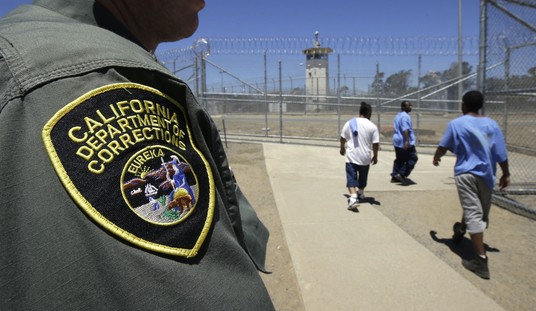Officially, the number of attempts to detain Robert Card comes to two. However, in this Bangor Daily News exposé of the efforts to warn that the Army reservist had become a serious threat, it becomes clear that red flags were flying for months — and yet no one intervened effectively.
The police were warned twice, very specifically, that the man who massacred 18 people had become dangerously paranoid and had begun collecting firearms:
The Sagadahoc County Sheriff’s Office released documents on Monday showing the office had two prior interactions containing warning signs of 40-year-old Robert R. Card II’s mental status and his access to firearms.
While one of those incidents has been reported on by some media in the wake of the Wednesday shootings that killed 18 people at a bowling alley and bar, those reports have not contained many of the key details outlined in the files sent to news outlets by Sheriff Joel Merry, whose agency covers Card’s hometown of Bowdoin.
The disclosures reveal the unraveling of a man witnessed by his family, friends and Maine law enforcement officers that served with Card in the Army Reserve, including a sheriff. They will raise questions about why Card did not trigger the state’s “yellow flag” law aimed at getting guns away from potentially dangerous people.
The two incidents with police came in May and September of this year. Card’s family initiated the first formal report; a fellow Army reservist filed the second report in September. The family’s effort did not indicate a specific threat, but the second did. Card had threatened to “shoot up” the Army Reserve center in Saco. At apparently the same time, a reservist also informed his command that Card was “going to snap and commit a mass shooting.”
But those were not the only indicators, Sawyer Loftus reports for BDN. Even in May, police investigators reached out to the Saco reserve center, where “considerable concern for Robert” was expressed. The deputy investigating that was also told by a local police officer that served with Card in the reserves about his increasingly paranoid behavior and threats. The family told investigators that Card had answered the door with a gun and that he had become dangerous.
And yet, the case in May was closed. No one knows why or how that happened, but even with all of those indicators, police didn’t pursue a “yellow flag” warrant to seize Card’s weapons. Without that kind of enforcement effort on the record, Card remained eligible to purchase and own firearms.
Next, in between the police investigations, the Army Reserve had its chances. Over the summer while on training, Card began issuing threats about conducting a mass shooting and accused his friends and colleagues of conspiring against him. After a fistfight initiated by Card, the Army Reserve sent Card to a military hospital for psychiatric evaluation, where he was confined for 14 days.
What happened after that? No one has any answers on that point either.
Warnings about Card continued afterward, however, and police got involved again in mid-September. The Army Reserve told police that they had confiscated Card’s Army weapons, and Card’s brother assured police that the family had taken the rest. Police tried to detain Card for evaluation but did not find him, and it’s not clear how hard they tried to do so. They did issue an attempt-to-locate order, but canceled it exactly one week before Card started his murder spree.
Why was it canceled? The police won’t say.
This points up the problems with the “let’s pass more laws” approach to mass shootings. The problem isn’t a lack of laws; the problem is a lack of enforcement, combined with a lack of will to deal with the dangerously mentally ill. The family warned the police, and so did the Army Reserve, going as far as to commit Card themselves to what is likely the extent of their authority. Maine passed its “yellow flag” law to deal with this exact scenario, and yet no one bothered to use it at all. Instead, despite all of the red flags and constant behavioral issues Card displayed, the law never got deployed because police (and perhaps the family) didn’t bother to use it.
I am not a great fan of yellow/red flag laws. They are constitutionally suspect, for one thing, and the potential for manipulation by state and local prosecutors against critics seems high where due-process prerequisites are not in place. But that’s beside the point here. Maine passed this law in response to a real issue around the seriously mentally ill having firearms, and yet no one bothered to use it. And now the result of that failure is pushing people to pass more laws that will infringe on the rights of law-abiding citizens even further when the problem is that law enforcement and/or prosecutors won’t use the tools they have.
It is long past time to restore the power to keep the dangerously mentally ill confined for the protection of others. And it is long past time to find prosecutors who are interested in enforcing the law rather than manipulating it for their own political purposes.







Join the conversation as a VIP Member